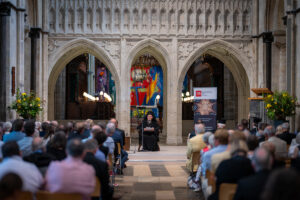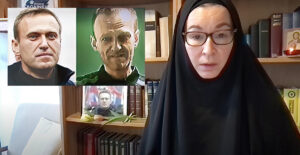The Hurriyet Daily News recently reported in its ‘Opinion’ section on ‘Turkey’s approach to patriarchate is a revolution’ written by Mehmet Ali Birand.
The Hurriyet Daily News is the oldest current English-language daily in Turkey. The published article can be read in its entirety below.
Turkey’s approach to patriarchate is a revolution
By Mehmet Ali Birand
12/8/2010
Read this article on the Hurriyet Daily News
Turkey is taking some silent steps we could identify as revolutionary.
Turkey’s approach to the patriarchate changes with each passing day. I have not talked about this subject until now because other events came my way. But I can’t help but draw some attention to it now, because they are extremely important steps and the policies of previous administrations on the matter were very different.
The patriarchate used to be called an empire of evil. It was perceived as trying to destroy Turkey and make sneaky plans in order for Greece to take control of Anatolia. It was labeled an institution that was to be oppressed and kept in its place. It was perceived as an enemy that foreign imperial forces forced upon us in Lausanne, which we unwillingly needed to carry on our backs.
Because of just this perception the issue of the patriarchate was turned over to the military. Everything regarding the patriarchate needed to be approved by the Turkish Armed Forces, who used to connect each submitted claim to the famous principle of reciprocity saying, “They should take a step on the issue of Western Thrace issue first.”
Because of these policies, real estate owned by the patriarchate started being illegally confiscated in the 1950s and many limitations were placed on it, restricting its activities. A similar version of the torture done to the Rum people, Turks of Greek origin, was exercised on this religious institution as well. The policy went so far as to close the Halki Seminary on Büyükada, one of Istanbul’s Princes’ Islands. The closing of the seminary might have been equivalent to severing one of the patriarchate’s arteries in order to staunch a flow of blood.
Didn’t we all, until recently, watch shows on TV – and foremost on state-owned channels –dedicated especially to issues regarding the patriarchate issued from famous people like columnists, bureaucrats, politicians and academics crying out furiously about this betrayal?
In the Turkish Republic, the formal name of the head of the Orthodox Church, who millions of people respect and consider beyond blame, was “Fener Patriarch.” And his addressee used to be the head official of the district of Fener.
With international conditions changing, Greece becoming a full member of the European Union and Turkey being in line for membership with the EU, the process was accelerated.
Untying the knot
The knot was untied by two people with a vision and great efforts. One of them was Bartolomeos, elected patriarch in 1991. He was not like previous patriarchs.
His attitude was to search for his rights, but instead of criticizing the Turkish Republic he glorified it, especially in the international community, and supported its membership to the EU enormously. The patriarchate’s image according to the Turkish public all of a sudden changed.
The other party contributing to untying the knot was Turkish Prime Minister Recep Tayyip Erdoğan.
After he came to power he saved the patriarch from the head official of Fener and made himself an addressee for the patriarch. Beside his personal relationship with Bartolomeos he approached the patriarchate with consideration, instead of perceiving it ideologically as evil.
He did not allow his party or himself to fall into the trap of trying and prove his own religion through the patriarchate. On the contrary he proved his self-confidence and paved the way for the patriarch.
Vital rulings
I don’t know why but the ruling Justice and Development Party, or AKP, administration has not been able to reopen the Halki Seminary despite promises. But it did take very vital steps to give life to the Holy Synod Assembly.
When the prime minister could not open the Halki Seminary, feeding the main artery of the Orthodox Church, it by-passed to other arteries of the heart by providing Turkish citizenship to those participating in the assembly.
This was of vital importance.
Then he visited Athens, stating that he planned to work with the patriarch in conjunction with the head of the Department of Religious Affairs. For the first time he said, “The ecumenical title did not bother our ancestors, why should it bother us?” Thus he bought the dispute to a halt.
The last step was the rendering of the orphanage on Büyükada, for which the patriarchate had fought for many years.
If the prime minister wanted to, the Turkish judicial system could have, despite the European Court of Human Rights, made the orphanage case so difficult and divisive that people would have given up.
But here we also need to congratulate the General Directorate for Foundations for not resisting and for also helping the case succeed.
These steps paving Turkey’s way were very important – no matter what.







